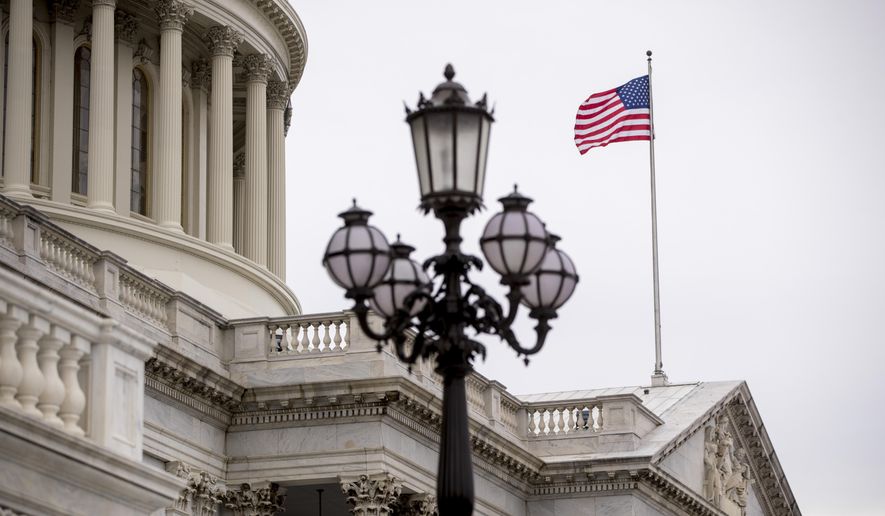House conservatives on Wednesday laid down their marker in the 2020 spending talks, unveiling a budget proposal with deeper domestic cuts than President Trump’s plan and attempting to reclaim the moral high ground when it comes to federal budgeting.
The Republican Study Committee’s proposal slashes $12.6 trillion out of projected spending over the next decade, bringing the budget within balance in six years.
“I’m one who believes and well admits that Republicans have lost the moral authority when it comes to spending in Washington,” said Rep. Jim Banks, Indiana Republican. “But what we’ve tried to produce … is a budget that shows the way forward for the American people.”
The RSC blueprint calls for about $6.1 trillion in savings from slowing the growth of mandatory programs like Medicare and Social Security that make up the bulk of the federal budget and are generally left to run on autopilot.
It also projects $3 trillion in savings by consolidating Medicaid, the children’s health insurance program, and some Obamacare subsidies into a handful of block grants to states, hoping they can use the money more efficiently.
The plan won’t go anywhere this year. Democrats, who control the House, have punted on adopting a budget, as have Senate Republicans.
But Rep. Mike Johnson, who chairs the RSC, a caucus of about 140 conservatives, pitched the proposal as a playbook for House Republicans to work off when they’re in the majority again.
“This is our effort to claim and reclaim that moral ground on this, because we feel it’s so fundamental to the responsibility [in] what Congress is here to do and is supposed to do,” said Mr. Johnson, Louisiana Republican. “We don’t have the luxury of complacency. We don’t have the luxury of time.”
Congressional Democrats’ budgeting efforts have stumbled as the party debates how much more it wants to spend, with programs such as the Green New Deal and “Medicare for All” universal health care splitting moderates and liberals.
Meanwhile, Mr. Trump’s budget calls for cuts but also uses rosy economic predictions and gimmicks to try to rein in deficits.
The RSC plan is in line with Mr. Trump on defense discretionary spending, calling for $745 billion in 2020.
For domestic programs, it allows for $349 billion. That would mean slashing education, health, environment and other basic government spending about in half.
The budget proposes to limit new hires for the federal government to one employee for every three who leave the workforce, while giving the president flexibility to make adjustments in the case of a national emergency.
It also would eliminate the Export-Import Bank, saving an estimated $1.3 billion over 10 years, as well as the National Labor Relations Board, saving an estimated $284 million in 2020.
The plan also would take care of some longtime conservative targets.
Gone is federal funding for Washington, D.C.’s subway system, the Corporation for Public Broadcasting, the National Endowment for the Arts, the National Endowment for the Humanities and the Department of Agriculture’s catfish inspection program, among other initiatives.
“Let’s just put it bluntly: The federal government is doing too many things [and] what it does — much of it — is not done very well,” Mr. Johnson said.
In addition to the defense money, the RSC proposal does include $8.6 billion for construction of a U.S.-Mexico border wall, which is in line with the president’s 2020 request.
The president declared an emergency on the southern border earlier this year, which the administration said would unlock $3.6 billion in military construction money to go toward the wall.
House Democrats promptly sued, and are signaling they plan to use the 2020 spending process to push back on the president’s new demands for wall money.
An appropriations subcommittee advanced Wednesday a 2020 spending bill that specifically bars the use of any military construction funds from 2015-2020 to be used for border wall construction.
“I hope this committee can agree that the funds for a wall should not be stolen from previously approved vital military construction projects that are to a dollar, a higher priority than any wall,” said Rep. Debbie Wasserman Schultz, Florida Democrat.
• David Sherfinski can be reached at dsherfinski@washingtontimes.com.




Please read our comment policy before commenting.